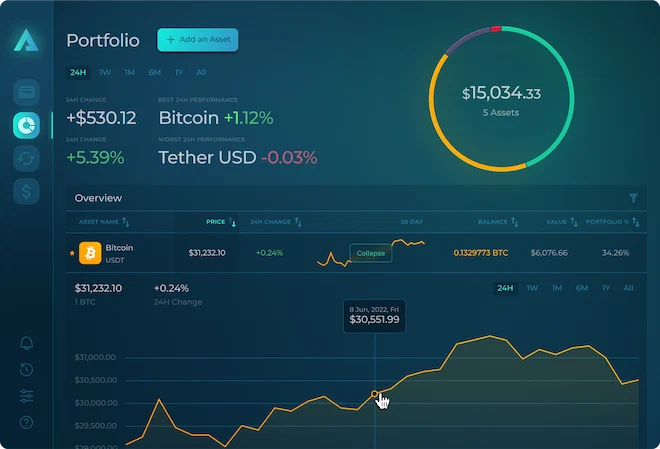Bitcoin of America: Why the United States Can't Ban Bitcoin
Feb 8, 2023With some countries banning Bitcoin outright, many are wondering if the United States should follow suit. The topic gets a darker turn with all the news coming about SEC willing to label everything as security and a recent commotion around US Senator Sherrod Brown calling to ban crypto.
But could a country like the US or any country actually ban crypto? Let’s face the issue. Are the risks really feasible? Or is it just a high-level FUD?
5 Reasons Why Governments Cannot Ban Bitcoin
Originally, Bitcoin was created to not become a hapless victim of any centralized invasion.
The United States government may be considering the possibility to outlaw Bitcoin, but the reality is that there are several challenges to banning cryptocurrency.
| Source: Investopedia |
1. Decentralized nature of Bitcoin
The inherent decentralization of blockchain makes it problematic for any government to ban cryptocurrencies. And here’s why: to completely eliminate Bitcoin, the government would need to shut down all computers and servers running the software, which is virtually impossible due to its decentralized nature.
2. BTC is not owned by any entity
As a decentralized system, there are no central points from which to shut down all computers running Bitcoin software. In fact, there isn’t even a company in charge of developing and managing Bitcoin. Rather, the network is maintained and managed by a group of open-source developers around the world. Therefore, there is no central person or entity that the government can go after in order to shut down Bitcoin.
| Schematic representation of Bitcoin Nodes Across the World / Source: Bitpanda |
3. Cryptocurrency is global
Cryptocurrencies have broad appeal for a variety of reasons. There are many people in the U.S. and other countries who make regular use of Bitcoin and want to keep using crypto. Hence, the United States removing itself from the narrative would have almost no impact on the use of Bitcoin elsewhere in the world.
4. Banning Bitcoin is rejecting a powerful technology
Thanks to Bitcoin and cryptocurrencies, anybody anywhere in the world can transact with anybody else with minimal friction, quickly, securely, and with low fees. The fact that cryptocurrencies are an easy and accessible tool for cross-border payments makes it the perfect global payment solution.
The attempts to ban it would stifle innovation in the US up to a point where all crypto companies flee across the border and people disapproving of the policy leave the country. Speaking of which, Dubai has very favorable laws towards cryptocurrencies. Take their 0% tax policy on crypto!
| Source: Twitter |
5. Ultimately, it is clear that any attempt to ban Bitcoin in America would be extremely difficult to enforce and would likely be met with significant pushback from the Bitcoin community.
| Source: Twitter |
Will Bitcoin Be Banned?
The United States is in a unique position when it comes to Bitcoin, and it is highly unlikely that it will be able to put an end to the world’s most popular cryptocurrency.
Bitcoin of America is not just a digital currency, but an entire industry that has become a major part of the economy. Authorities have a vested interest in the success of Bitcoin, and banning it would be difficult and detrimental to the economy. The United States needs to find a way to embrace Bitcoin and capitalize on its potential, rather than attempting to ban it. The crypto world would not oppose governments' help in ensuring the average consumer faces fewer risks associated with cryptocurrencies.
What you can do with crypto is regulate. Countries around the world are regulating crypto and many more will follow. Wouldn’t it be far more reasonable for the US to regulate cryptocurrency without outrightly banning it?


